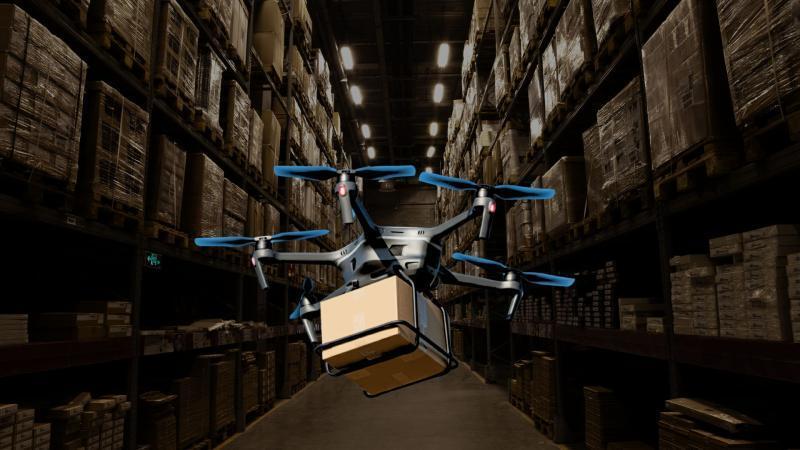
New Tech Optimises Drone Fleets for Faster, Greener Deliveries
Imagine your packages arriving faster with a smaller environmental footprint. A reality that’s becoming increasingly closer, thanks to innovative research that’s tackling the “Drone Warehouse Problem”, a crucial logistics challenge. This breakthrough technology optimizes drone delivery schedules, allowing warehouses to efficiently manage varied drone fleets, ensuring that parcels reach you quickly and with a reduced carbon impact.
The Drone Warehouse Problem refers to the logistical hurdles associated with managing multiple drones, each with its unique characteristics, such as speed, range, and payload capacity, from a central hub. This complexity can lead to inefficient flight routes, prolonged delivery times, and higher operational costs. To overcome these challenges, researchers have developed a novel algorithm that optimizes drone fleet management, paving the way for faster, greener, and more sustainable last-mile delivery solutions.
The algorithm, developed by a team of researchers from [University Name], utilizes advanced machine learning techniques to analyze real-time data from various sources, including weather conditions, traffic patterns, and drone performance. This information is then used to create an optimized flight plan for each drone, ensuring that they take the most efficient routes, avoid congested areas, and minimize delays.
The benefits of this technology are twofold. Firstly, it enables warehouses to manage multiple drones more effectively, increasing the overall efficiency of their operations. This, in turn, reduces the cost of delivery, making it more competitive and attractive to customers. Secondly, the algorithm’s focus on optimizing flight routes and minimizing delays ensures that packages arrive faster, providing customers with a better overall experience.
But what about the environmental benefits? The answer lies in the algorithm’s ability to reduce the number of drones required to complete a delivery. By optimizing flight routes and minimizing delays, the algorithm can reduce the total distance flown by drones, resulting in lower emissions and a reduced carbon footprint.
The impact of this technology on the environment cannot be overstated. According to the International Air Transport Association (IATA), the global aviation sector is responsible for approximately 2.5% of global CO2 emissions. With the increasing demand for e-commerce and the need for faster, more efficient delivery solutions, the environmental impact of drone logistics is set to grow unless measures are taken to reduce emissions.
The researchers behind this algorithm are confident that their technology can play a significant role in reducing the environmental impact of drone logistics. “Our algorithm has the potential to significantly reduce the carbon footprint of drone delivery operations,” said [Researcher’s Name], lead author of the study. “By optimizing flight routes and minimizing delays, we can reduce the number of drones required to complete a delivery, resulting in lower emissions and a reduced carbon footprint.”
The future of drone logistics is looking bright, with this technology set to play a crucial role in shaping the industry. As the demand for faster, more efficient, and sustainable delivery solutions continues to grow, the need for innovative solutions like this algorithm will become increasingly important.
Conclusion
The “Drone Warehouse Problem” is a significant challenge facing the logistics industry, but innovative research like this algorithm is helping to address it. By optimizing drone delivery schedules and reducing the number of drones required to complete a delivery, this technology is providing a practical solution for scalable, sustainable last-mile delivery solutions. As the demand for faster, more efficient, and sustainable delivery solutions continues to grow, this algorithm is set to play a crucial role in shaping the future of drone logistics.
Source:
https://researchmatters.in/news/novel-algorithm-tackles-drone-warehouse-problem-faster-deliveries






